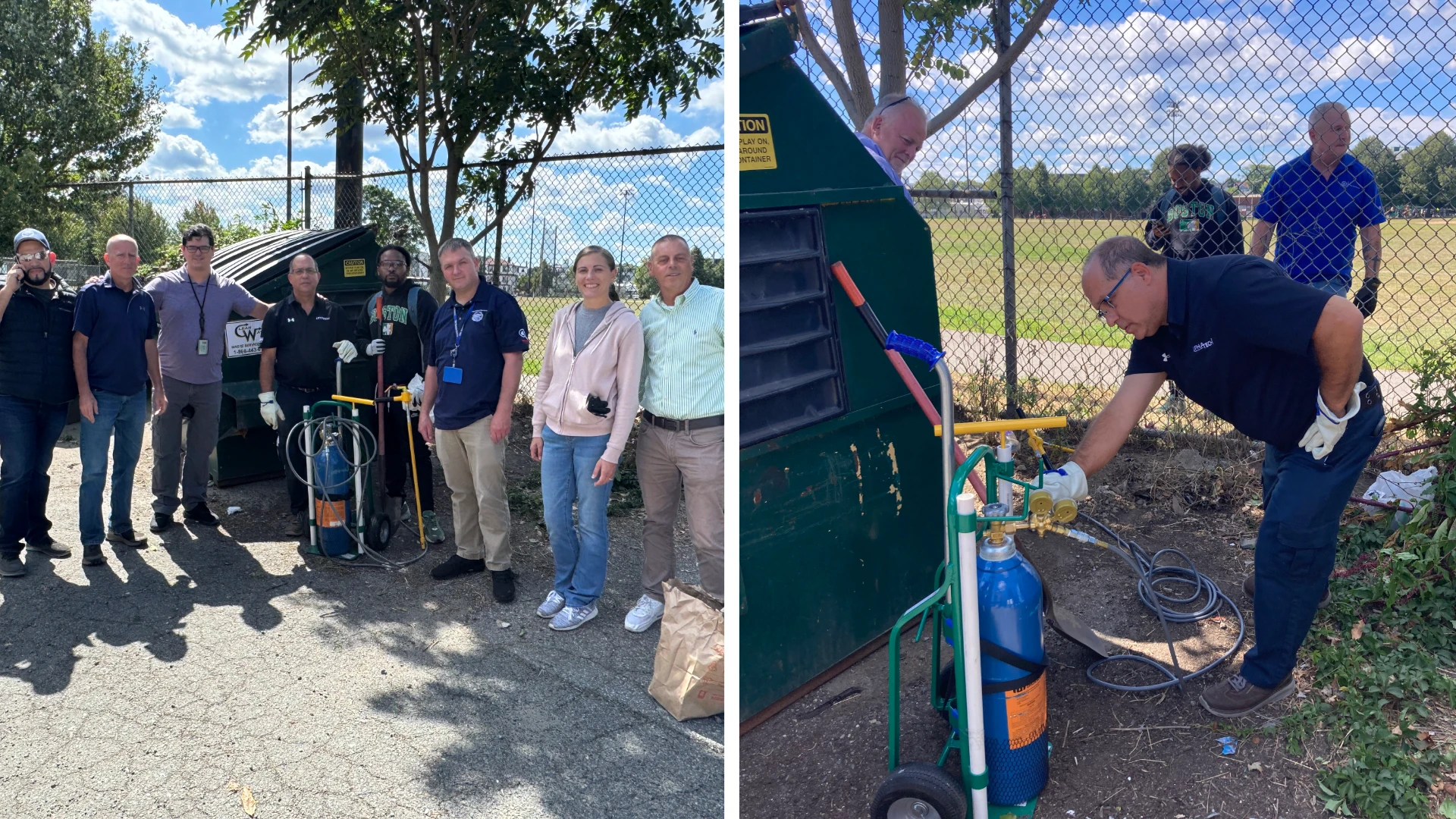For as many reasons as there are that people buy, there are just as many reasons why they say no. One of the most basic is that they simply do not like their sales representative. As a sales rep, it is important to develop a positive relationship with potential prospects quickly.
Another reason prospects might say no is because they don’t understand what they’re buying. The professional salesperson is responsible for giving prospective customers all the information they need. With all of the information provided, the prospect will be able to make a more intelligent and educated decision.
At NPMA’s PestWorld 2010, Tim Williams, president of Great American Sales & Marketing, Austin, Texas, led a seminar offering attendees advice on overcoming final objections when dealing with prospective clients.
If a prospect cannot perceive a difference in the person and the company they’re buying from, they might be less likely to buy. It’s important for salespeople to stand out among their competitors by demonstrating a unique difference that sets them apart. Send hand-written thank you notes or even consider putting out a personal newsletter. Try whatever you can to distinguish yourself from the competition, Williams advised.
Prospective clients need to be able to see the value in the product or service they are buying. Salespeople need to be able to show them what’s in it for them so they know exactly what they’ll be receiving. It is of the utmost importance that potential clients believe, trust and have confidence in their sales representatives. Without these things, prospects are likely to say no.
Be sure the price you’re charging seems in line with the product or service you are selling. If prospects aren’t buying, it’s important to address any pricing issues head-on to make sure the objection is being dealt with before it even comes up.
If prospects don’t think a purchase will increase their productivity or profit, it is the salesperson’s job to make sure the prospect knows how he will benefit from doing business with his or her pest control company.
Now that you know the potential reasons prospective clients might say no to buying your goods and services, it’s important to look at the five ways you can handle their objections.
HANDLING OBJECTIONS. Williams said the first technique is to reverse their reasoning. Make their objection the reason for buying. If the prospect says they don’t have any money right now, let them know that is exactly the reason they should move ahead with this proposal. The price will be going up soon, which means that by buying today, the prospect will actually be saving money.
The next technique is to explain. Explain the real situation and give prospective clients the facts. If they say, for instance, that they don’t think they need a monthly pest control service, let them know that really, all restaurants need ongoing pest control programs to keep customers happy and coming back.
The third method relies on agreeing with the prospect. Some of their objections are actually valid, so it is smart to admit this and just move on. The objection that monthly pest control is going to increase their expenses is a valid one. Yet, monthly pest control is also going to keep them from having to deal with pest problems. While their point is legitimate, there are some purchases that have to be made.
If a prospect’s objection is obviously untrue, don’t be afraid to use the fourth method and deny it. For example, if the prospect says they heard your company was about to go out of business, let them know that in reality, your company has never been in better financial shape and your sales are actually up at the moment, with a positive outlook for 2011.
The final technique is to simply ask "why." Don’t be afraid to ask why a prospective client feels the way they do. If you do this, they may just end up answering their own objection.
Williams also shared detailed rules on handling objections properly. Be sure to listen to the objection. Let the prospect know you have truly heard and understood the objection they have.
You also have to discuss all of the important objections. Acknowledge the prospect’s points and ask why they feel the way they do. Ask if there are any other reasons that are causing them to hesitate. Finally, ask if they would be willing to move forward with you if their questions can be answered to their satisfaction.
One rule to remember is avoiding using the word "but." Instead, use the phrase "at the same time." Also make an effort never to argue. Williams puts it simply when he says, "Win the argument…lose the sale."
Find a point of agreement and use the words "feel," "felt" and "found." For example, say, "I understand how you feel…some of our best clients felt the same way before they started doing business with us and here’s what they’ve found."
Remember to answer briefly and completely. Never appear to doubt that you’ve addressed the prospect’s objection in the best possible way.
Most importantly, remember that when you are dealing with final objections, you’re very close to making that sale. Once the objection is answered, move right into a "trial close."
A TRIAL CLOSE. A trial close is a question asked or a suggestion made by the salesperson to determine if the prospect is ready to close. A good trial close almost always asks for an opinion rather than a decision. They let you know when it’s time to ask for the order and they usually shorten the sales presentation.
1. "Would you want to be billed monthly or quarterly?"
2. "What are your feelings about doing business with our company?"
3. "If I could show you a way to save some money over what you normally spend on pest control would you want to take a look at it?"
4. "If you decide to do business with me, what are the three most important things you’d want me to know about your company?"
5. "What are your feelings about doing business with our company?"
Finally, be sure to watch for buying signals and listen for buying questions. Use trial closes and answer all objections. Ask for the order and act as if they are going to say "yes."
Be confident in yourself, your company and your products and services. Know that the products and services you provide can help make your prospective client’s life better. According to Williams, one of the best closes you can have is simply, "This is right for you…let’s do it!"
Editor’s note: Tim Williams owns Great American Sale & Marketing, an advertising agency and sales training company specializing in pest control companies and other businesses. Visit www.great
americansales.com or call 512/280-2310.
The author is a Nyack, N.Y.-based writer. She can be reached at hmoreland@giemedia.com.

Explore the July 2011 Issue
Check out more from this issue and find your next story to read.
Latest from Pest Control Technology
- Rentokil Terminix Expanded in Key Markets with 2024 Acquisitions
- In Memoriam: Joe Cavender
- Certus Acquires Green Wave Pest Solutions
- Liphatech Adds Alex Blahnik to Technical Team
- Do the Right Sting: Stinging Insect Identification, Management, and Safety
- VAGA's 8th Annual Veterans Thanksgiving Appreciation Dinner
- Clark's Blair Smith on the Response to Increased Dengue Fever Cases in Southern California
- WSDA, USDA Announce Eradication of Northern Giant Hornet from U.S.





